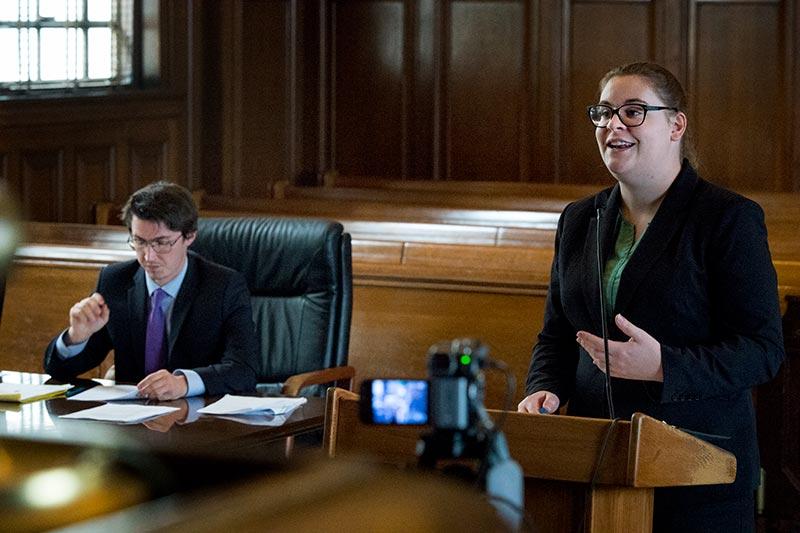Mock trial tests Tulane law and medical students
The defendant, according to his attorney, shot and killed his cancer-stricken father because voices were telling him to put him out of his misery. He asked the judge to acquit him because he was insane at the time of the crime.
“Delusional thoughts had a significant impact on his ability to distinguish right from wrong,” the defense attorney said.
The prosecutor argued that the defendant knew exactly what he was doing when he took his father’s life. “Grandiose thinking doesn’t mean he can’t tell right from wrong,” he said.
The closing arguments took place in Criminal District Court, only those serving as defense lawyer and prosecutor were actually students of Tulane Law School. And expert witnesses were forensic psychiatry fellows of Tulane University School of Medicine.
Based on a real case, the annual mock trial was part of an interdisciplinary collaboration between the two schools to provide training in how to deal with challenging mental health issues in criminal cases. It is a requirement for students in professor Katherine Mattes’ Criminal Law Clinic and is designed to give law students and forensic psychiatry fellows a chance to practice skills that can make them more effective in the courtroom.
The mock trial consisted of three rounds in two courtrooms, giving 10 law students and two forensic psychiatry fellows an opportunity to test their skills. Following closing arguments, they gathered in the judge’s chambers to get feedback from Tulane law and medical school faculty who had been observing from the jury box.
Kyle Daly, an assistant district attorney who played the role of judge, complimented students but noted that in some instances their language and style could have been stronger. He warned one student against telling the judge to “do the right the thing” in his closing argument.
Mattes said she was pleased with how students presented themselves. “They stepped up to the challenge of working with real experts in a real courtroom environment.”
Third-year law student Kelsey Tebo-Baker agreed. “It was unique and very instructive because we were able to practice with real experts and get direct feedback from them.”

